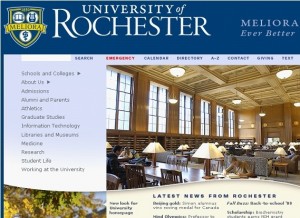
Courtesy of http://news.nextbus.com/
It’s always a cause for excitement when courses for the next semester are released — students can browse, discuss and plan classes well before the registration period begins. However, this tradition has undergone a change this time around. Two weeks ago, the University’s Registrar, Nancy Speck, announced that this would be the first semester when physical copies of the course catalogue would not be printed. Students were encouraged to use the online Course Description/Course Schedule (CDCS) database on the registrar’s website for up-to-date information about Spring 2012 courses, in lieu of the physical catalogue that was once distributed throughout campus.
This change is, in some ways, a reasonable one: It’s probably very cost effective to not print course catalogues, and considering the changes that will inevitably happen to the course selection before registration begins, it’s safe to assume that students are more likely to turn to the CDCS anyway.
However, the benefit of having a printed course catalogue aligns with the University’s prided goal of having a distinct open curriculum. Although students surely know which classes they want or have to take, they also have the freedom to dabble in subjects outside of their primary academic focuses. In this case, a printed course catalogue offered a greater opportunity for academic discovery.
This is a familiar dilemma that comes up when weighing the advantages of print versus digital media. The online database allows students to directly — and exclusively — examine the subjects they decide to look into. On the other hand, while the printed catalogue is less convenient and up-to-date, it also offers students a better chance to browse the entirety of available courses by simply flipping through the pages and, whether intentionally or accidentally, stumbling upon interesting classes they would have never considered.
The University is right to believe that students will primarily rely on CDCS for academic planning, and to encourage students to do so for the most up-to-date information about the next semester’s offerings. But it isn’t necessary for the physical catalogue to be completely phased out, even when considering cost efficiency. Perhaps the Registrar could just continue to offer a smaller number of course catalogues each semester, which would keep costs down but still offer the option to students who want to peruse through UR’s academic possibilities the old fashioned way.


